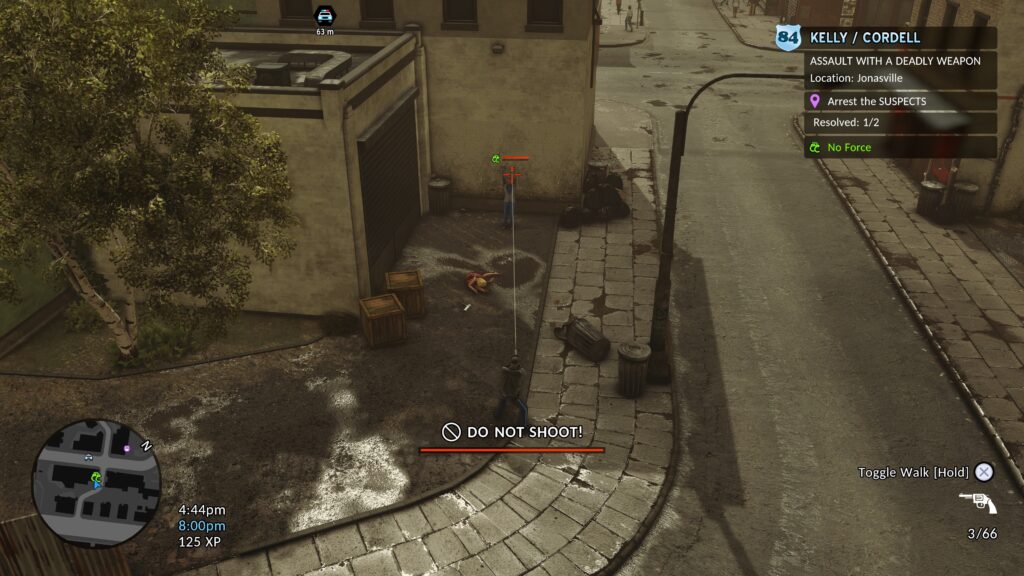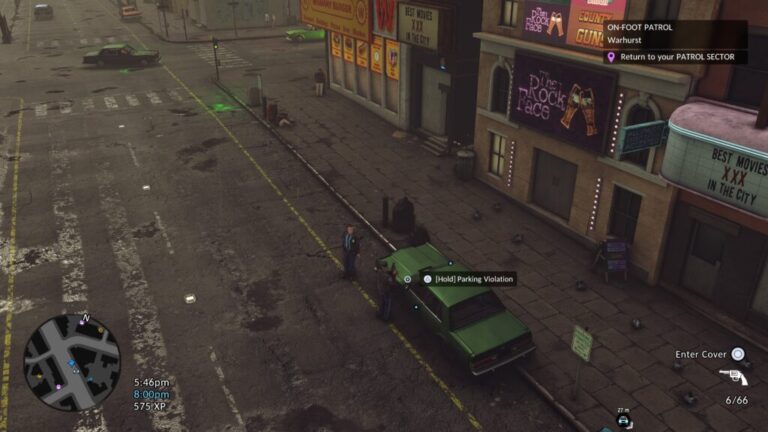In the vast world of video games, few titles attempt to portray the realities of police work with any meaningful nuance. Most games either lean into over-the-top action or opt for crime narratives that prioritize adrenaline over justice. But The Precinct, developed by UK-based Fallen Tree Games, aims to chart a different path—one where the police officer isn’t a flawless hero, but a flawed human being grappling with trauma, doubt, and personal motivation.
A Story of Loss, Legacy, and Law Enforcement
Players take on the role of Nick Cordell, a rookie cop drawn into the criminal underworld following the death of his father, a former officer. Haunted by the past, Nick embarks on a journey through a decaying city riddled with corruption. He’s mentored by Kelly, a grizzled veteran just weeks from retirement. Their dynamic not only injects humanity into the narrative but also explores generational and ideological contrasts in policing.
Ambition vs. Execution: A Noir Setup That Falters
The Precinct sets the stage for a noir-inspired crime tale. The ingredients are all there—murder, mystery, a broken city, and shadowy figures within the police force. However, despite this promising setup, the execution falls short. The mystery elements are resolved too quickly, robbing the narrative of suspense. Anyone familiar with noir tropes or police thrillers will likely see twists coming from miles away.
Dialogues and character arcs, while initially intriguing, devolve into predictable clichés. Characters that seem layered at first soon reveal themselves as recycled archetypes, draining the story of emotional depth and surprise. The narrative ultimately fails to deliver a gripping, character-driven journey, settling instead for formulaic storytelling.
Visual Design: A Noir City That Breathes
Where the story falters, the visuals stand tall. Built using the Unity engine, The Precinct delivers a striking portrayal of Averno City. Neon-lit signs, rain-soaked alleys, and detailed urban textures combine to create a city with genuine personality. The environment feels alive—often prompting players to pause and soak in the scenery.
It’s surprising that Unity, typically reserved for smaller indie titles, powers such a rich, immersive world. The destructibility of objects (excluding buildings), realistic physics, and debris effects make every street encounter feel dynamic. Watching objects fly during shootouts or seeing parts of the environment break apart adds to the tension and believability.
However, technical issues sometimes mar this visual achievement. Texture pop-ins, glitchy animations, and inconsistent vehicle damage systems (particularly with enemy cars) disrupt immersion. These bugs, while not game-breaking, chip away at the game’s polish and can frustrate during key moments.
Sound and Voice: A Mixed Bag of Atmosphere

While the game’s visuals impress, the audio design is far less effective. The soundtrack starts strong, complementing the noir atmosphere with moody tones, but soon becomes repetitive and uninspired. Over longer sessions, the lack of variety in background music becomes grating—what was meant to enrich the emotional experience instead detracts from it.
In contrast, the voice acting is commendable. Voice performances add credibility to characters like Nick and Kelly. Unfortunately, the game’s minimalist presentation—a reliance on painted portraits rather than cinematic cutscenes—limits their emotional impact. The absence of facial expressions, body language, and animated dialogue means emotional scenes feel flat and disconnected.
A Promising Start Undone by Repetitive Gameplay
At first, The Precinct presents itself as a fresh take on the police simulator genre. Early missions—ticketing illegally parked cars, arresting drug dealers, conducting sobriety tests, calling in license plate checks—feel grounded and engaging. High-speed chases and street-level shootouts inject adrenaline into an otherwise procedural formula.
However, the game’s potential quickly stalls. Within just a few hours, mission types begin to repeat with minimal variation. The once-promising structure becomes a cycle of monotony, and players are left craving something new. Attempts to diversify gameplay—such as rally races—fail due to poor design and unrealistic AI that seems more interested in ramming the player off course than in actual racing.
This issue extends to main missions. For example, in one scene involving a dual suspect pursuit, your AI partner fails to engage and simply follows you around, breaking immersion. Moreover, flawed crime identification mechanics often penalize players for correctly identifying witnessed crimes, discouraging active engagement with the system.
AI and Systems That Undermine Immersion
AI behavior is arguably the game’s weakest technical point. Inconsistent NPC logic, unresponsive partners, and confusing mission scripting frequently pull players out of the experience. These flaws don’t just impact realism—they actively interfere with core gameplay, turning what should be immersive encounters into frustrating exercises in futility.
The same applies to the game’s justice system, which sometimes contradicts player choices. Even when the player observes a crime firsthand and issues an accurate charge, the system may still mark it as incorrect, punishing players unfairly. Over time, these issues wear down enthusiasm, and players may opt to let the AI handle duties rather than risk unjust penalties.
Final Verdict: Potential Lost in the Line of Duty
The Precinct launched with lofty ambitions: a grounded, immersive cop simulator with noir storytelling and a living, breathing city. Visually, it mostly delivers. But beyond the surface, the game suffers from narrative predictability, repetitive gameplay loops, and AI shortcomings that drag the experience down.
What begins as a thrilling new take on police life quickly becomes a routine of repeated tasks, made worse by bugs and missed storytelling opportunities. The game’s early promise of emotional weight, strategic decision-making, and ethical dilemmas fades into a frustrating grind.
Despite its compelling visuals and solid voice work, The Precinct fails to meet the standards it sets for itself. With more polish, better mission diversity, and smarter AI systems, it could’ve been something special. As it stands, it’s a missed opportunity—a crime drama that never quite cracks the case.
